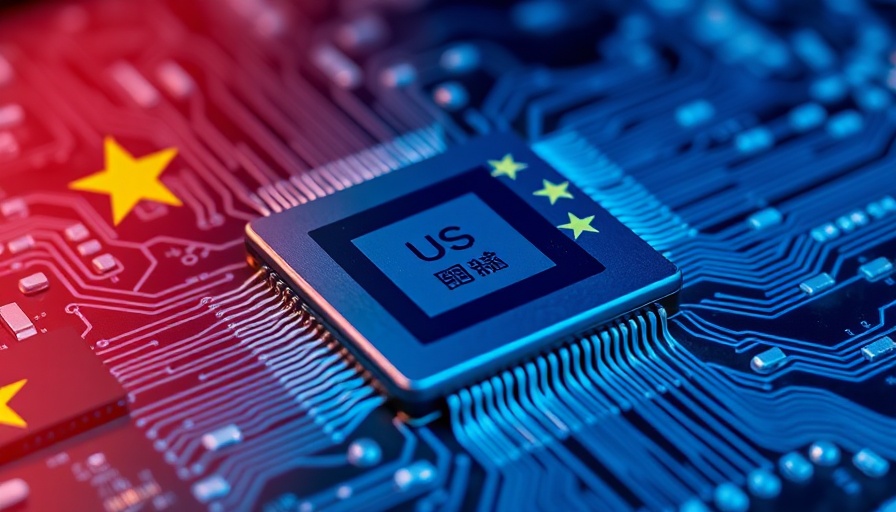
US Trade Restrictions: A Targeted Approach to AI and Tech
In a significant move, the US government imposed strict trade restrictions on 80 entities, primarily targeting Chinese firms involved in artificial intelligence (AI) and advanced technology. The Commerce Department's action aims to safeguard national security by curtailing the transfer of sensitive technologies to adversaries, thereby preventing their potential application in military contexts.
Understanding the Entity List
The 'entity list' is a critical tool for the US government, which restricts firms from acquiring American technology without prior authorization. This recent decision specifically identifies 11 Chinese entities, including the Beijing Academy of Artificial Intelligence and subsidiaries of Inspur Group, involved in developing cutting-edge AI technologies that have military applications. The move underscores the growing concern over how advancements in AI could enhance adversarial capabilities.
The Broader Implications of AI in Warfare
As nations ramp up their adoption of AI in military applications, the US is establishing controls to limit these technologies' proliferation. The restrictions reflect a recognition that AI isn't just a commercial tool but a powerful asset that can shift the balance of military power. For instance, AI advancements can enhance decision-making speeds in combat scenarios or automate drone warfare, leading to ethical concerns about the future of warfare. The restrictions aim to keep US technology from contributing to these developments.
China's Response: Pushing for Independence
In response to US sanctions, China is driving toward greater self-reliance, particularly in the semiconductor sector. Tech companies like Huawei and SMIC are focused on developing domestic technologies to circumvent US sanctions and build an independent supply chain. This evolution can potentially lead to a significant technological shift, affecting global supply chains and international relations.
Counterarguments: Collaboration vs. Confrontation
While the US government's position is steeped in national security, critics argue that such restrictions might stifle innovation and collaborative advancements in AI. Proponents of free trade contend that global collaboration is crucial for addressing major challenges, such as climate change, healthcare, and cybersecurity threats. Striking a balance between safeguarding national interests and fostering global collaboration in technology development is a topic of immense debate.
The Future of Global AI Development
As restrictions continue and AI capabilities evolve, we can expect stronger global divisions in technology development. Nations must navigate a landscape where technological competition not only shapes economies but also determines military powers. Understanding these dynamics is vital for investors, technologists, and policy-makers alike, as they will influence which countries lead in innovation.
Final Thoughts on AI and National Security
The US trade restrictions indicate a significant shift in how nations are viewing technological advancements concerning national security. With countries increasingly integrating AI into their military capabilities, it is essential for stakeholders to stay informed about these developments. AI enthusiasts and industry players must contemplate how this interplay between regulation and innovation will shape the future landscape of technology and its implications for society.
Call to Action: If you are keen on understanding how technology policies are shaping the future, engage with communities that discuss these insights and share your thoughts. Your perspective matters in navigating this rapidly changing world.
 Add Row
Add Row  Add
Add 




 Add Row
Add Row  Add
Add 

Write A Comment